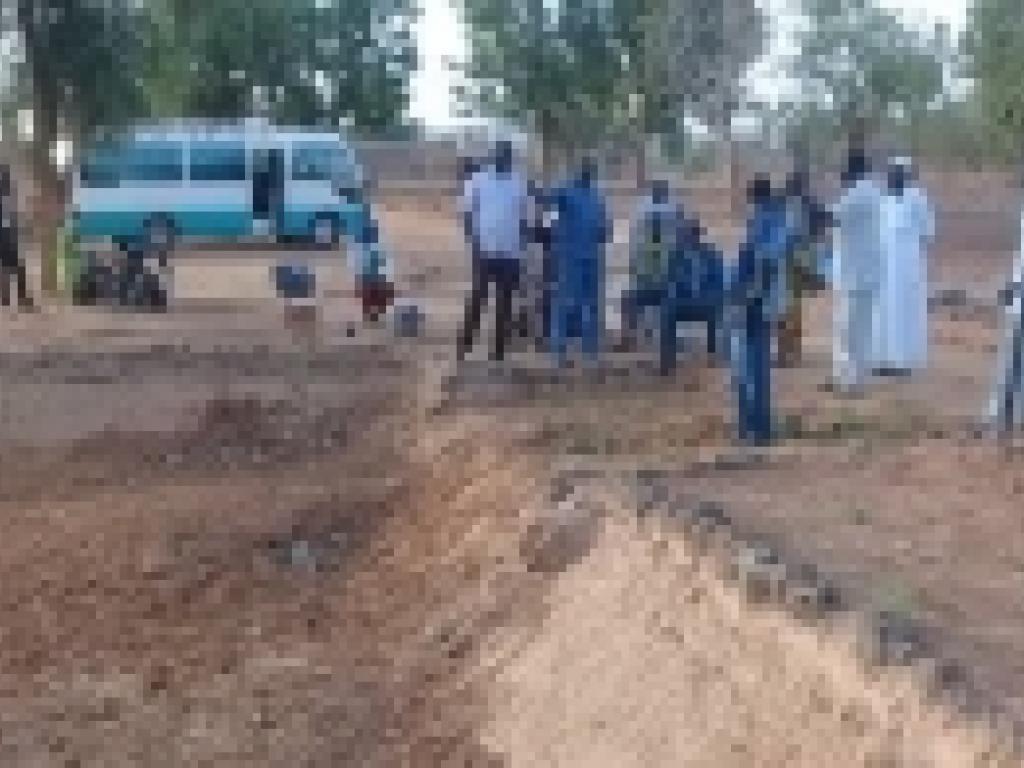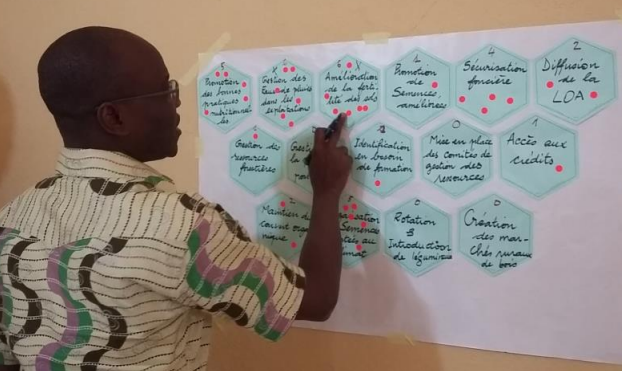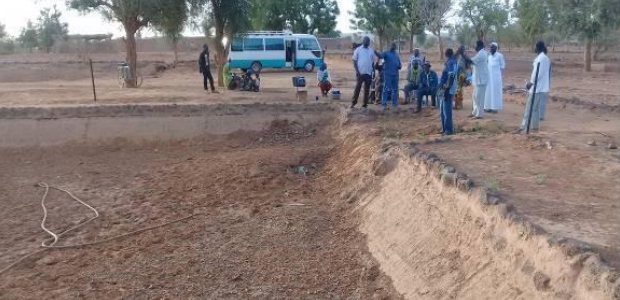Capacity development around soil and water management in the district of Koutiala, Mali: from need to deed

By Amadou Sidibé, Researcher, International Crops Research Institute for the Semi-Arid Tropics (ICRISAT)
Capacity development, one of ASSAR’s key components of research for impact, is needed to create the conditions for stakeholders to take action leading to improved wellbeing and adaptive outcomes.
The district of Koutiala is facing many pressing climatic and non-climatic challenges for agriculture, natural resources and food security. These include access to farm inputs, technology and equipment; security, regulatory and governance challenges; erratic rainfall; high population growth; and the subsequent high pressure on land and other natural resources.

To tackle these challenges, the ASSAR team in Mali used Transformative Scenario Planning (TSP) in 2016 with a diverse group of stakeholders to imagine what might happen to Koutiala’s agriculture, natural resources and food security up to the year 2035. While the participants identified many climatic and non-climatic factors that could influence the development of agricultural activities, access to land and to water for irrigation emerged as the two key drivers. Following the development of the scenarios, the participants prioritised major shared themes to result in ‘Vision 2035’: By 2035, strategic investments will target agriculture and natural resource conservation to ensure food security and improve household income in the Koutiala district.
This vision indicates that new capacities are needed to enable a better use of the scarce soil and water resources and variable rainfall in the district.
Cross-border exchange visit to Burkina Faso
In order to fill this gap, and as part of ASSAR’s Scenario Based Capacity Building (SBCB) activities, a three-day cross-border exchange visit was organised for 11 TSP participants to neighbouring Burkina Faso, which has vast experience in water and soil fertility management practices. Hired to provide the technical expertise by Oxfam, Wetlands International Mali (WIM) facilitated the exchange visit, along with two team leaders from the partner NGO AMEDD.
The first two days of discussions with staff from the Institut International d’Ingénierie de l’Eau et de l’Environnement (2iE) focused on the history and pros and cons of constructing BCER (Bassin de Collecte des Eaux de Ruissellement) – basins for the collection of run-off water to be used for irrigation during dry spells. A field visit ensued to four sites where BCER have been constructed (mainly using local labour), as well as to combined water and soil fertility management sites under the Ministry of Agriculture, which have created the conditions for irrigated vegetables, cereal and honey production by farmers.

TSP participants from Koutiala, Mali, on a field trip to Burkina Faso. (Photo by Siaka Coulibaly, AMEDD)
Following the exchange visit, WIM trained 14 TSP participants, including five women, around the practices of soil and water management. They watched a video explaining the history of the BCER and learned the steps involved in their construction, including the gendered division of tasks (men are responsible for the excavation, while women help with the removal of soil). They also learned that a collective effort was being initiated through an NGO to provide food-for-work to the local labour.
Participants shared their impressions and learnings from the visit: the arid conditions of the visited sites; how the size and type of basin is adapted to farmer needs; how the basin’s position must consider the site’s slope; and the way collected water is used for supplemental irrigation during dry spells – for vegetable production, as well as drinking water for animals. To learn more about the criteria for the selection of suitable sites for the basins, another field visit was arranged to identify three sites collectively for the piloting of the BCER in Koutiala. These sites will be located on private fields but easily accessible for collective learning. Capacities will continue to be strengthened through the construction of two pilot basins, their management over time and the creation of the enabling conditions needed for scaling out sustainable water and soil management practices, in collaboration with the platform members led by AMEDD, Oxfam, WIM and extension workers.
The process is likely to go beyond ASSAR’s lifetime but is certainly an adaptive capacity development that the project is leaving behind for stakeholders across scale in Koutiala, who see the construction of these basins for collecting run-off water as an interesting perspective for agricultural intensification in the district.
This article first appeared in the ASSAR Spotlight on Capacity Building (September 2018).